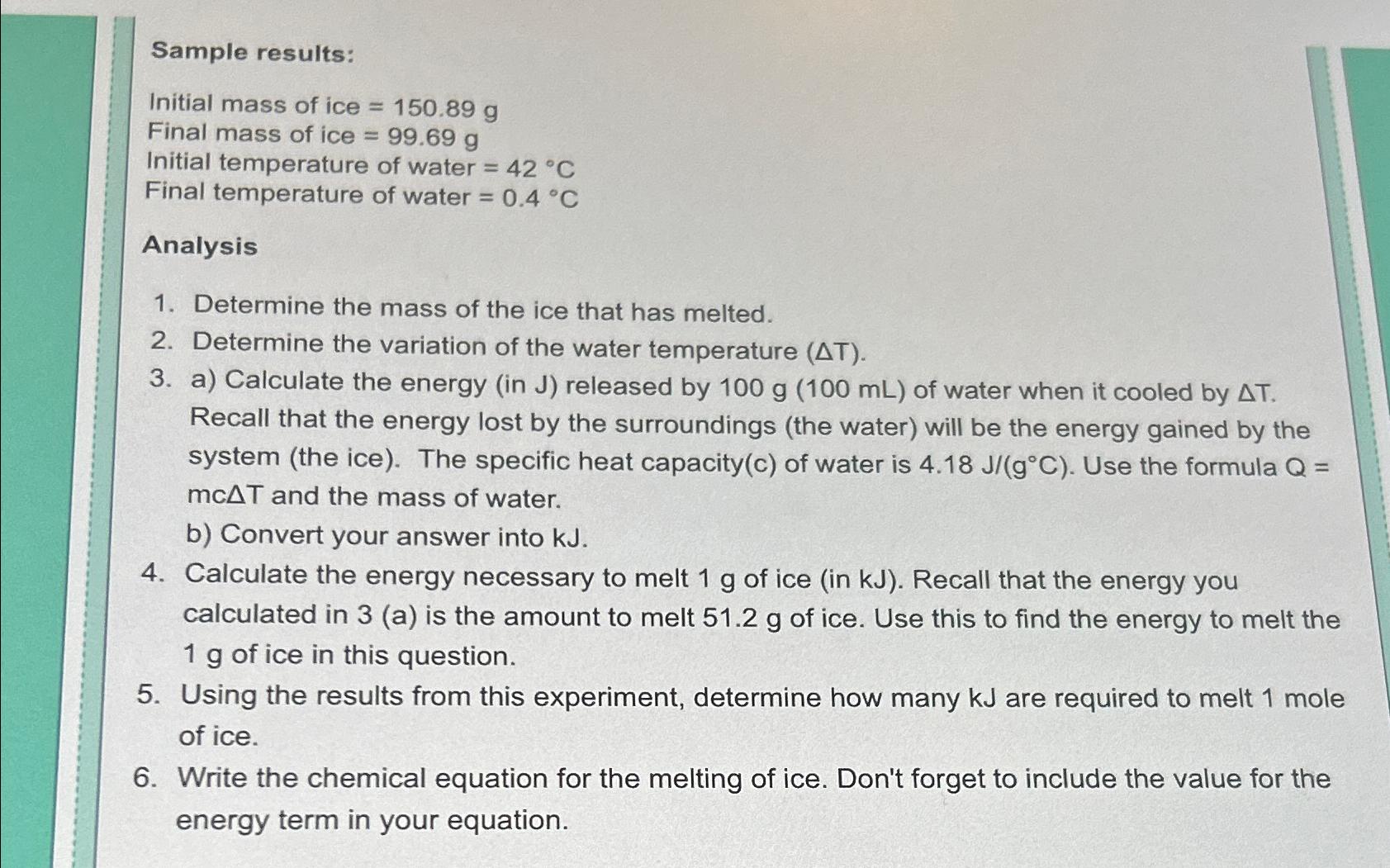Answered step by step
Verified Expert Solution
Question
1 Approved Answer
Sample results: Initial mass of ice = 1 5 0 . 8 9 g Final mass of ice = 9 9 . 6 9 g
Sample results:
Initial mass of ice
Final mass of ice
Initial temperature of water
Final temperature of water
Analysis
Determine the mass of the ice that has melted.
Determine the variation of the water temperature
a Calculate the energy in J released by of water when it cooled by Recall that the energy lost by the surroundings the water will be the energy gained by the system the ice The specific heat capacityc of water is Use the formula and the mass of water.
b Convert your answer into kJ
Calculate the energy necessary to melt of ice in Recall that the energy you calculated in a is the amount to melt of ice. Use this to find the energy to melt the of ice in this question.
Using the results from this experiment, determine how many are required to melt mole of ice.
Write the chemical equation for the melting of ice. Don't forget to include the value for the energy term in your equation.

Step by Step Solution
There are 3 Steps involved in it
Step: 1

Get Instant Access to Expert-Tailored Solutions
See step-by-step solutions with expert insights and AI powered tools for academic success
Step: 2

Step: 3

Ace Your Homework with AI
Get the answers you need in no time with our AI-driven, step-by-step assistance
Get Started


